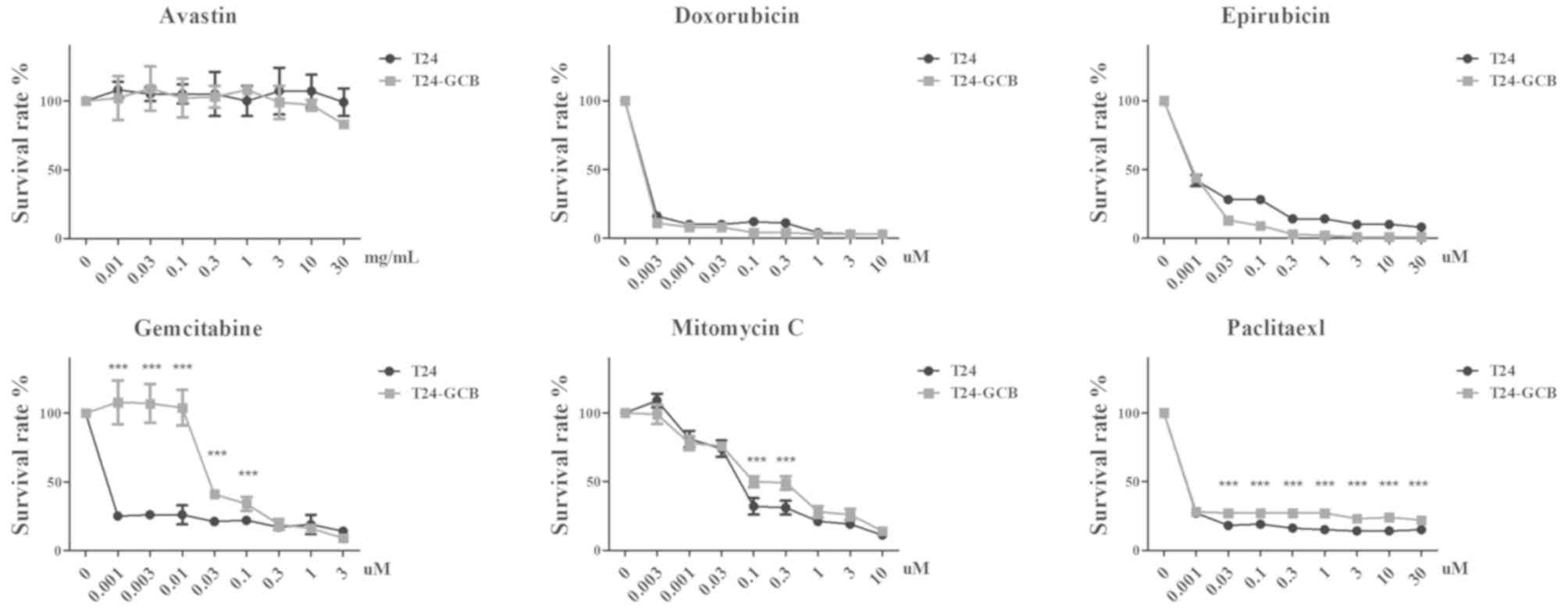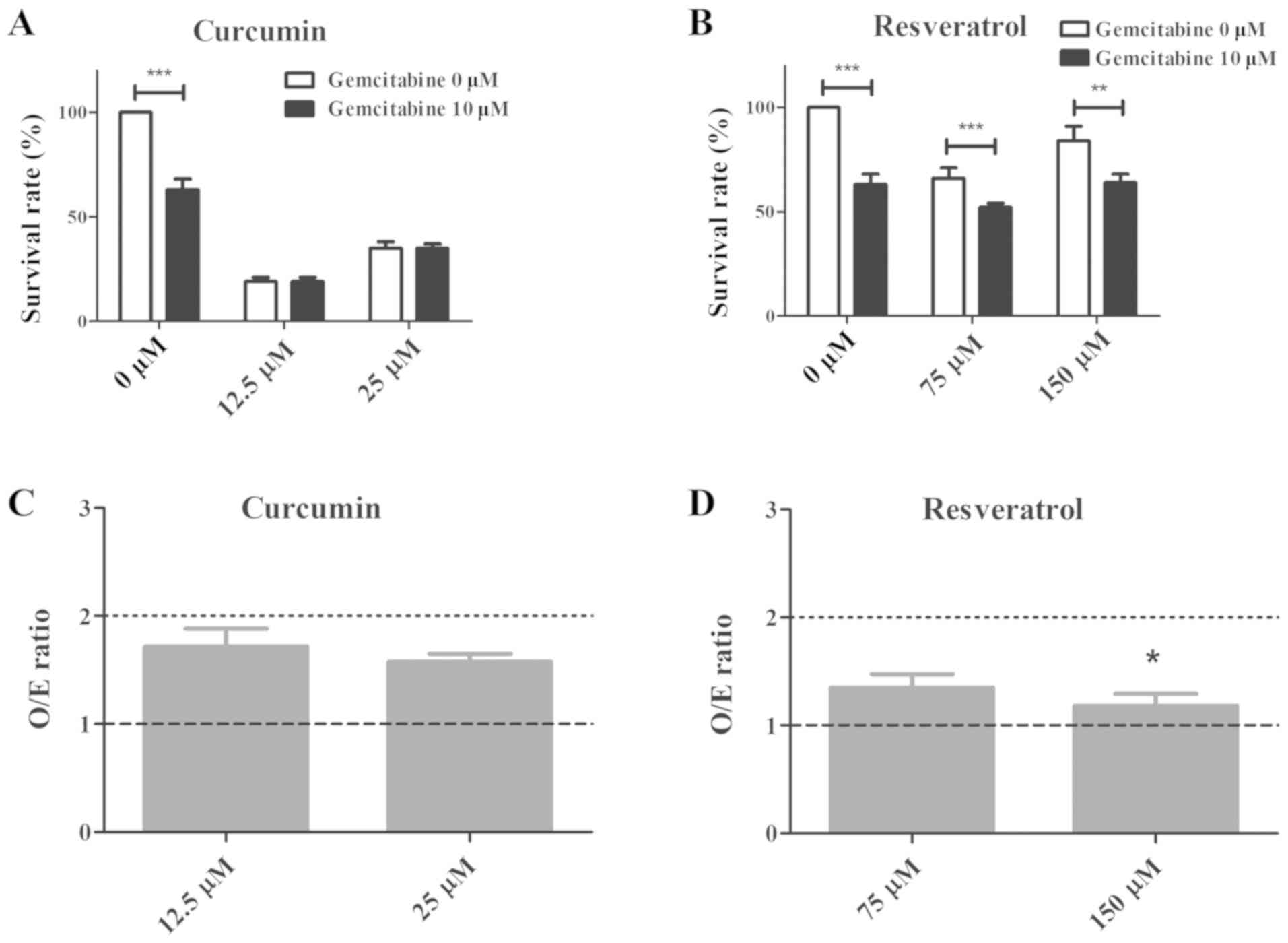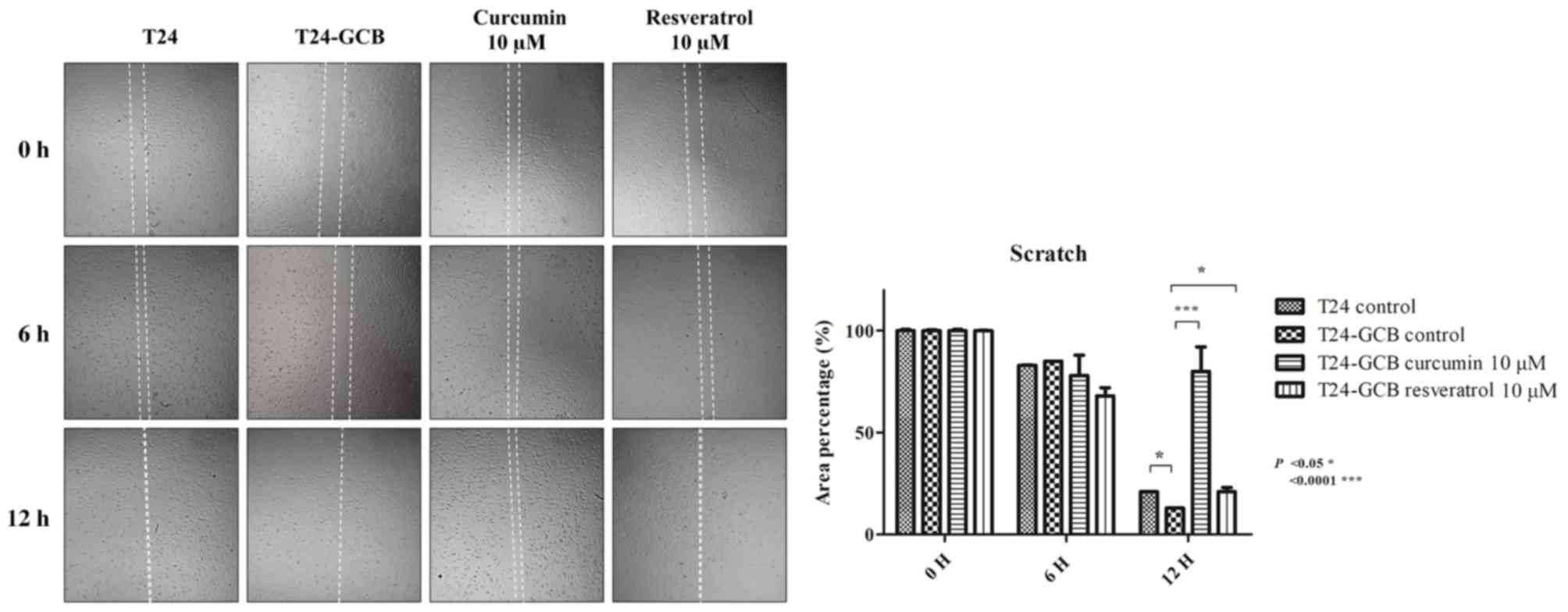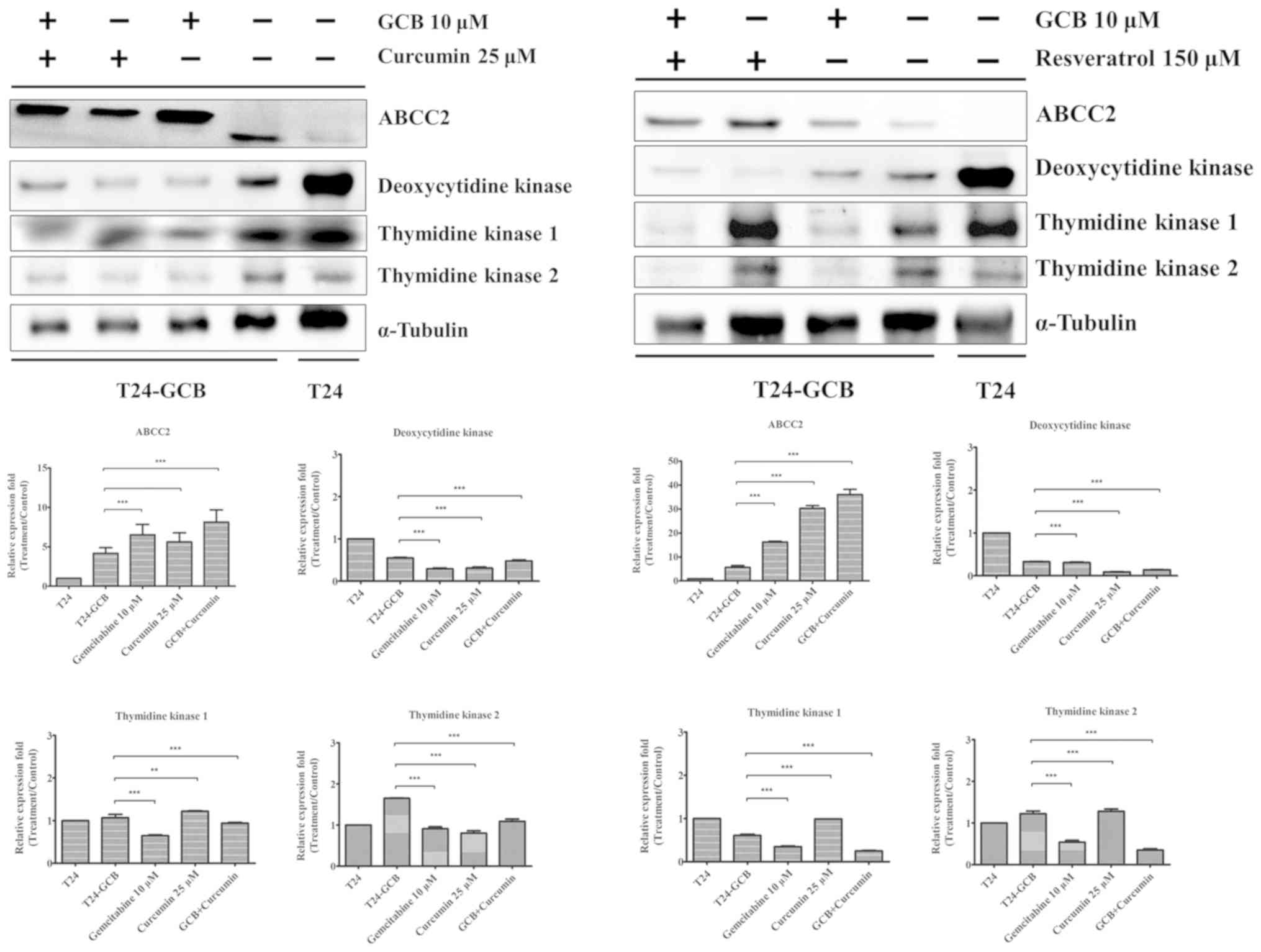|
1
|
Luqmani YA: Mechanisms of drug resistance
in cancer chemotherapy. Med Princ Pract. 14 (Suppl 1):S35–S48.
2005. View Article : Google Scholar
|
|
2
|
Nguyen DP and Thalmann GN: Contemporary
update on neoadjuvant therapy for bladder cancer. Nat Rev Urol.
14:348–358. 2017. View Article : Google Scholar : PubMed/NCBI
|
|
3
|
Chai S, To KK and Lin G: Circumvention of
multi-drug resistance of cancer cells by Chinese herbal medicines.
Chin Med. 5:262010. View Article : Google Scholar : PubMed/NCBI
|
|
4
|
Vasiliou V, Vasiliou K and Nebert DW:
Human ATP-binding cassette (ABC) transporter family. Hum Genomics.
3:281–290. 2009. View Article : Google Scholar : PubMed/NCBI
|
|
5
|
Chen Z, Shi T, Zhang L, Zhu P, Deng M,
Huang C, Hu T, Jiang L and Li J: Mammalian drug efflux transporters
of the ATP binding cassette (ABC) family in multidrug resistance: A
review of the past decade. Cancer Lett. 370:153–164. 2016.
View Article : Google Scholar : PubMed/NCBI
|
|
6
|
Fedier A, Dedes KJ, Imesch P, Von Bueren
AO and Fink D: The histone deacetylase inhibitors suberoylanilide
hydroxamic (vorinostat) and valproic acid induce irreversible and
MDR1-independent resistance in human colon cancer cells. Int J
Oncol. 31:633–641. 2007.PubMed/NCBI
|
|
7
|
Collett GP, Robson CN, Mathers JC and
Campbell FC: Curcumin modifies Apc(min) apoptosis resistance and
inhibits 2-amino 1-methyl-6-phenylimidazo[4,5-b]pyridine (PhIP)
induced tumour formation in Apc(min) mice. Carcinogenesis.
22:821–825. 2001. View Article : Google Scholar : PubMed/NCBI
|
|
8
|
Chen KG and Sikic BI: Molecular pathways:
Regulation and therapeutic implications of multidrug resistance.
Clin Cancer Res. 18:1863–1869. 2012. View Article : Google Scholar : PubMed/NCBI
|
|
9
|
Sapienza C and Issa JP: Diet, nutrition,
and cancer epigenetics. Annu Rev Nutr. 36:665–681. 2016. View Article : Google Scholar : PubMed/NCBI
|
|
10
|
Collins AR, Azqueta A and Langie SA:
Effects of micronutrients on DNA repair. Eur J Nutr. 51:261–279.
2012. View Article : Google Scholar : PubMed/NCBI
|
|
11
|
Royston KJ and Tollefsbol TO: The
epigenetic impact of cruciferous vegetables on cancer prevention.
Curr Pharmacol Rep. 1:46–51. 2015. View Article : Google Scholar : PubMed/NCBI
|
|
12
|
Livak KJ and Schmittgen TD: Analysis of
relative gene expression data using real-time quantitative PCR and
the 2(-Delta Delta C(T)) method. Methods. 25:402–408. 2001.
View Article : Google Scholar : PubMed/NCBI
|
|
13
|
Wattanawongdon W, Hahnvajanawong C, Namwat
N, Kanchanawat S, Boonmars T, Jearanaikoon P, Leelayuwat C,
Techasen A and Seubwai W: Establishment and characterization of
gemcitabine-resistant human cholangiocarcinoma cell lines with
multidrug resistance and enhanced invasiveness. Int J Oncol.
47:398–410. 2015. View Article : Google Scholar : PubMed/NCBI
|
|
14
|
Achiwa H, Oguri T, Sato S, Maeda H, Niimi
T and Ueda R: Determinants of sensitivity and resistance to
gemcitabine: The roles of human equilibrative nucleoside
transporter 1 and deoxycytidine kinase in non-small cell lung
cancer. Cancer Sci. 95:753–757. 2004. View Article : Google Scholar : PubMed/NCBI
|
|
15
|
Davidson JD, Ma L, Flagella M, Geeganage
S, Gelbert LM and Slapak CA: An increase in the expression of
ribonucleotide reductase large subunit 1 is associated with
gemcitabine resistance in non-small cell lung cancer cell lines.
Cancer Res. 64:3761–3766. 2004. View Article : Google Scholar : PubMed/NCBI
|
|
16
|
Modok S, Mellor HR and Callaghan R:
Modulation of multidrug resistance efflux pump activity to overcome
chemoresistance in cancer. Curr Opin Pharmacol. 6:350–354. 2006.
View Article : Google Scholar : PubMed/NCBI
|
|
17
|
Zaman GJ, Flens MJ, van Leusden MR, de
Haas M, Mülder HS, Lankelma J, Pinedo HM, Scheper RJ, Baas F,
Broxterman HJ, et al: The human multidrug resistance-associated
protein MRP is a plasma membrane drug-efflux pump. Proc Natl Acad
Sci USA. 91:8822–8826. 1994. View Article : Google Scholar : PubMed/NCBI
|
|
18
|
Sodani K, Patel A, Kathawala RJ and Chen
ZS: Multidrug resistance associated proteins in multidrug
resistance. Chin J Cancer. 31:58–72. 2012. View Article : Google Scholar : PubMed/NCBI
|
|
19
|
Chen ZS and Tiwari AK: Multidrug
resistance proteins (MRPs/ABCCs) in cancer chemotherapy and genetic
diseases. FEBS J. 278:3226–3245. 2011. View Article : Google Scholar : PubMed/NCBI
|
|
20
|
Shehzad A, Wahid F and Lee YS: Curcumin in
cancer chemoprevention: Molecular targets, pharmacokinetics,
bioavailability, and clinical trials. Arch Pharm (Weinheim).
343:489–499. 2010. View Article : Google Scholar : PubMed/NCBI
|
|
21
|
Lee DS, Lee MK and Kim JH: Curcumin
induces cell cycle arrest and apoptosis in human osteosarcoma (HOS)
cells. Anticancer Res. 29:5039–5044. 2009.PubMed/NCBI
|
|
22
|
Guan F, Ding Y, Zhang Y, Zhou Y, Li M and
Wang C: Curcumin suppresses proliferation and migration of
MDA-MB-231 breast cancer cells through autophagy-dependent Akt
degradation. PLoS One. 11:e01465532016. View Article : Google Scholar : PubMed/NCBI
|
|
23
|
Limtrakul P, Anuchapreeda S and Buddhasukh
D: Modulation of human multidrug-resistance MDR-1 gene by natural
curcuminoids. BMC Cancer. 4:132004. View Article : Google Scholar : PubMed/NCBI
|
|
24
|
Tang XQ, Bi H, Feng JQ and Cao JG: Effect
of curcumin on multidrug resistance in resistant human gastric
carcinoma cell line SGC7901/VCR. Acta Pharmacol Sin. 26:1009–1016.
2005. View Article : Google Scholar : PubMed/NCBI
|
|
25
|
Patel BB and Majumdar AP: Synergistic role
of curcumin with current therapeutics in colorectal cancer:
Minireview. Nutr Cancer. 61:842–846. 2009. View Article : Google Scholar : PubMed/NCBI
|
|
26
|
Mukhtar E, Adhami VM, Khan N and Mukhtar
H: Apoptosis and autophagy induction as mechanism of cancer
prevention by naturally occurring dietary agents. Curr Drug
Targets. 13:1831–1841. 2012. View Article : Google Scholar : PubMed/NCBI
|
|
27
|
Varoni EM, Lo Faro AF, Sharifi-Rad J and
Iriti M: Anticancer molecular mechanisms of resveratrol. Front
Nutr. 3:82016. View Article : Google Scholar : PubMed/NCBI
|
|
28
|
Yousef M, Vlachogiannis IA and Tsiani E:
Effects of resveratrol against lung cancer: In vitro and in vivo
studies. Nutrients. 9:E12312017. View Article : Google Scholar : PubMed/NCBI
|
|
29
|
Lin HY, Shih A, Davis FB, Tang HY, Martino
LJ, Bennett JA and Davis PJ: Resveratrol induced serine
phosphorylation of p53 causes apoptosis in a mutant p53 prostate
cancer cell line. J Urol. 168:748–755. 2002. View Article : Google Scholar : PubMed/NCBI
|
|
30
|
Holian O, Wahid S, Atten MJ and Attar BM:
Inhibition of gastric cancer cell proliferation by resveratrol:
Role of nitric oxide. Am J Physiol Gastrointest Liver Physiol.
282:G809–G816. 2002. View Article : Google Scholar : PubMed/NCBI
|
|
31
|
Manna SK, Mukhopadhyay A and Aggarwal BB:
Resveratrol suppresses TNF-induced activation of nuclear
transcription factors NF-kappa B, activator protein-1, and
apoptosis: Potential role of reactive oxygen intermediates and
lipid peroxidation. J Immunol. 164:6509–6519. 2000. View Article : Google Scholar : PubMed/NCBI
|
|
32
|
Wang Y, Romigh T, He X, Orloff MS,
Silverman RH, Heston WD and Eng C: Resveratrol regulates the
PTEN/AKT pathway through androgen receptor-dependent and
-independent mechanisms in prostate cancer cell lines. Hum Mol
Genet. 19:4319–4329. 2010. View Article : Google Scholar : PubMed/NCBI
|




















